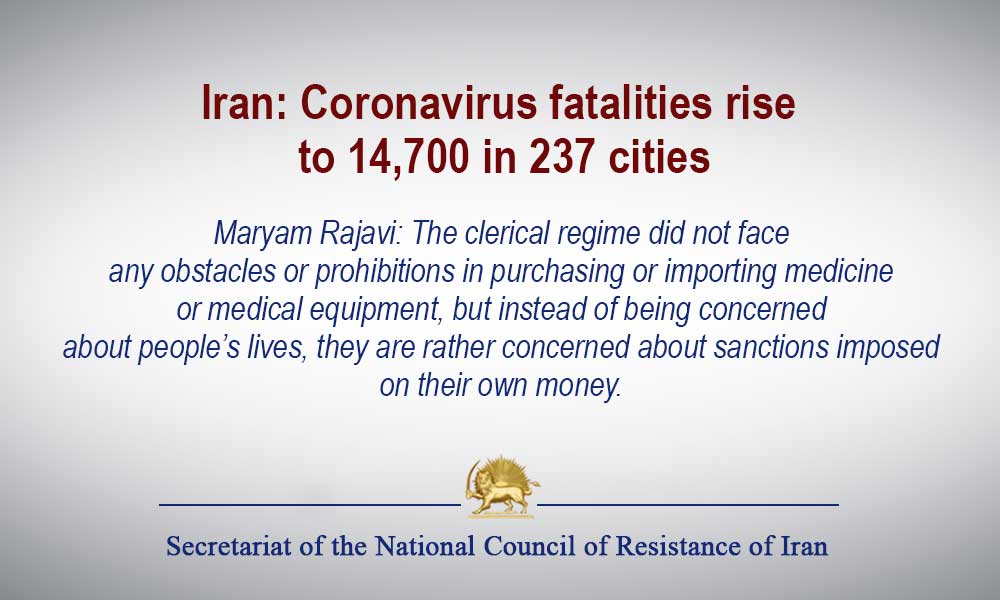Iran: Coronavirus fatalities rise to 14,700 in 237 cities

The number of victims in Isfahan is 1500, Ilam 135, Tehran 1900, Khorasan Razavi 1120, Khuzestan 635, Zanjan 280, Fars 240, Kurdistan 240, Kerman 180, Kermanshah 400, Golestan 705, Mazandaran 1060, Central Province 230, and Hamadan 300.
The new cases of Coronavirus infection in the past 24 hours, according to the Iranian regime’s Ministry of Health is 3111 and the number of deaths put at 141. In the meantime, Rouhani described the new figures encouraging and said, “The number of those admitted to hospitals have fallen and the situation in 23 provinces are good and the conditions are acceptable.”
The regime’s national TV showed last night a meeting between Rouhani and a group of physicians where one of them reacted to Rouhani’s comment claiming that the whole world had been caught off guard and said, “My request is to speak with proof. We cannot run a country with guesses and assumptions. As a university lecturer, I say that we did not use many potentials of the country. Mr. President, the whole world was caught off guard, but we were caught off guard with our hands tied up.” Another physician told Rouhani, “In many parts of the country including Tehran we have not yet reached a peak. It is necessary that we maintain a state of isolation and quarantine for some three to four weeks. SARS virus had a number of peaks; therefore, this virus may stay with us for a year or two.”
The University of Medical Science of Zahedan announced that until Tuesday noon, March 31, the number of patients in hospitals under its cover in Sistan and Baluchistan province was 1258 out of which 99 have lost their lives.
The University of Medical Science of Kurdistan reported seven under 10-year-old children had been infected and warned that the peak is underway in Kurdistan province in the coming days.
Dr. Mohebi from Ali Ben Abitalib hospital of Qom said on March 29 that the number of people going to hospitals has risen much higher compared with last month and they suffer from an intense lack of hospital beds.
Mrs. Maryam Rajavi said that the clerical regime did not face any obstacles or prohibitions in purchasing or importing medicine or medical equipment, but instead of being concerned about people’s lives, they are rather concerned about sanctions imposed on their own money.
The Iranian resistance has for many years insisted that the provision of food and medicine and payment of unpaid wages to nurses, workers, and teachers must be supervised and controlled by the United Nations because Khamenei would spend the money in Iraq, Syria, Yemen, and Lebanon for his terrorist and reactionary ambitions, and above all, fill the pockets of the regime’s Revolutionary Guards.
Secretariat of the National Council of Resistance of Iran (NCRI)
March 31, 2020
- Tags: Mojahedin

